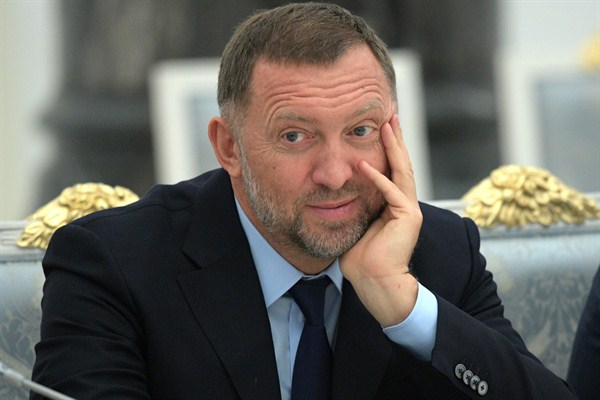While the Trump administration follows through with reimposing sanctions on Tehran after it withdrew the U.S. from the Iran nuclear agreement, the rhetoric over American sanctions on Russia is seriously overheating. Debate centers on the Treasury Department’s potential removal of the Russian aluminum firm Rusal from its blacklist of sanctioned Russian entities. This dispute risks obscuring how a desire to hit back against Russia over its election interference, rather than punish Rusal’s oligarch founder, Oleg Deripaska, invites severe unintended consequences. While the political value of keeping Rusal on the Treasury blacklist may seem high, it comes with wider economic costs that are being overlooked.
The controversy began when Treasury Secretary Steven Mnuchin indicated publicly that the Office of Foreign Assets Control, or OFAC, may remove Rusal from the Specially Designated Nationals and Blocked Persons List, known as the SDN list. OFAC sanctioned Rusal back in April because Deripaska’s holding company, En+ Group, controlled a significant percentage of Rusal shares. In its press release announcing the initial designation, the Treasury Department linked Deripaska directly to the Kremlin, citing an array of illegal activity on behalf of the interests of the Russian Federation. Since then, the Treasury Department has repeatedly extended the deadline for companies to unwind their business with Rusal and a handful of other sanctioned Russian firms, while publicly stating that it was negotiating how to legally allow them to continue operations without Deripaska’s involvement.
Many observers who have been critical of President Donald Trump’s passive attitude toward the threat of Russian interference into U.S. elections were quick to pounce at Mnuchin’s announcement. Democratic Sen. Richard Blumenthal tweeted that, in taking this position, the Treasury Department was privileging Russian jobs over the safety of Americans. Bill Browder, the Anglo-American businessman whose lawyer was found dead in a Russian prison after uncovering and alleging tax fraud, and who has since led the charge to go after the Kremlin’s inner circle, also criticized the news. He wrote on Twitter that it was “hard to understand what logic there could be to take this action given Putin’s malevolence.” An op-ed in The New York Times called it “Another Gift for a Putin Buddy.”

